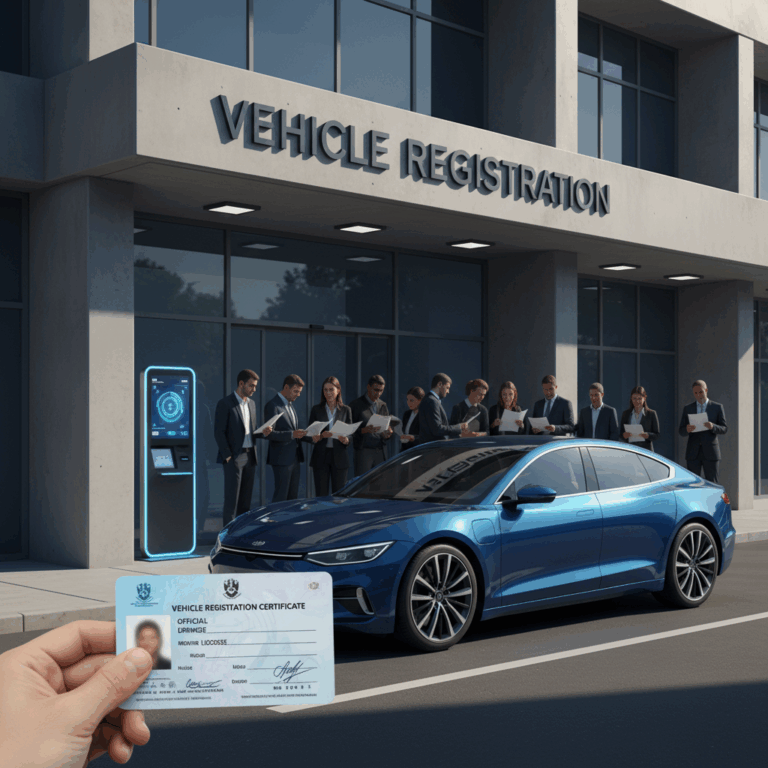Overview of Vehicle Registration Law Changes
The landscape of vehicle registration laws is undergoing significant transformation worldwide. These changes aim to enhance road safety and streamline administrative processes.
New regulations focus on technical certification, ownership updates, and digital advancements. Authorities are working to ensure compliance and improve efficiency.
Different countries adopt varied approaches depending on their legal frameworks and infrastructure, affecting vehicle owners and authorities alike.
New Regulations in Spain for 2024
Spain’s Directorate General of Traffic (DGT) has introduced new rules for 2024, including mandatory technical certification for new vehicles. This ensures higher safety and environmental standards.
Older vehicles are exempt from immediate certification until 2027, providing owners time to comply. Additionally, reforms to the General Traffic Regulations are planned, possibly becoming effective in 2025.
These updates aim to improve control over vehicle standards and support Spain’s broader road safety goals while aligning with evolving European directives.
Vehicle Registration Requirements in Brazil
In Brazil, maintaining an up-to-date vehicle registration is essential for legal road use. The Vehicle Registration Certificate (CRV) must be updated after ownership transfers, address changes, or vehicle modifications.
Failing to comply with registration and licensing rules can lead to severe fines and legal consequences, emphasizing the importance of adhering to these requirements.
Brazil’s system prioritizes clear documentation and accountability to ensure vehicles meet safety and regulatory standards before being operated on public roads.
European Standards and Digitalization
European vehicle registration is governed by strict homologation standards to ensure safety, environmental compliance, and technical quality across member states.
Digitalization efforts support harmonization, enabling faster registration processes and better compliance monitoring through technology adoption.
Regulatory reforms focus on integrating digital tools and updating technical criteria, aiming to improve road safety and administrative efficiency in Europe.
Vehicle Homologation Process in Europe
The European vehicle homologation process requires manufacturers to demonstrate that vehicles meet detailed technical and safety standards before market entry.
This process involves rigorous testing of emissions, safety features, and compliance with EU regulations, fostering uniformity across member states.
Homologation ensures that vehicles conform to environmental directives and safety norms, reducing risks for drivers and pedestrians alike.
Manufacturers must regularly update documentation and certifications to reflect regulatory changes, maintaining market access within Europe.
Digitalization of Vehicle Registration Procedures
Digital platforms are increasingly used to streamline vehicle registration, reducing paperwork and enabling real-time data sharing among authorities.
This shift enhances transparency, cuts processing times, and facilitates easy updates of ownership, technical data, and registration status electronically.
Countries like Spain have pioneered digital registration services, demonstrating the benefits of online systems in improving citizen convenience and administrative control.
Impact of Regulatory Reforms on Road Safety
Recent reforms targeting vehicle registration and homologation have significantly contributed to improved road safety standards in Europe.
By enforcing stricter technical requirements and enhancing digital oversight, regulators can better detect non-compliance and prevent unsafe vehicles from operating.
The integration of digital tools also supports quicker response times in accident investigations and vehicle recalls, thereby enhancing overall safety outcomes.
Legal Consequences and Compliance
Understanding penalties for non-compliance is crucial for vehicle owners to avoid legal troubles. Registration laws are strictly enforced worldwide, ensuring vehicle safety and legitimacy.
Failure to comply can result in fines, suspension of vehicle use, or other legal actions. Staying informed about regulations helps owners maintain valid registrations and avoid penalties.
Penalties for Non-Compliance with Registration Laws
Penalties vary by country but often include monetary fines and possible vehicle impoundment for unregistered or improperly registered vehicles. These sanctions aim to uphold legal standards.
In Brazil, missing timely updates to the Vehicle Registration Certificate (CRV) can lead to heavy fines and restrictions on vehicle use, emphasizing regulatory seriousness.
Spain’s enforcement includes monitoring technical certifications, where non-compliance risks suspension or fines. Authorities use these measures to promote road safety and compliance.
Updating Vehicle Ownership and Registration
Updating vehicle ownership and registration after sales or changes is essential to maintain legal compliance. This process ensures accurate records and accountability.
Registration updates typically require submission of official documents confirming ownership transfer and any vehicle modifications. Timely updates prevent future legal complications.
Digitalization of these procedures in some countries has simplified updates, allowing owners to complete them online, increasing convenience and reducing bureaucratic delays.
Future Directions and Trends
The future of vehicle registration is being shaped by innovative technologies and evolving administrative models that emphasize efficiency and security.
Digital transformation and smart systems will continue to revolutionize how vehicle data is managed, offering enhanced transparency and real-time access for authorities and owners.
Emerging Technologies in Vehicle Registration
Technologies such as blockchain, artificial intelligence, and Internet of Things (IoT) devices are being explored to improve the accuracy and security of vehicle registration processes.
Blockchain can provide immutable records, reducing fraud, while AI streamlines data verification and processing, increasing regulatory compliance efficiency.
IoT-enabled vehicles may automatically update registration and maintenance information, minimizing manual input and reducing errors.
Expected Changes in Administrative Processes
Administrative procedures are expected to become fully digital, integrating various stakeholders in a seamless online environment for vehicle registration and management.
Automation will reduce paperwork and processing times, enabling faster responses to ownership changes and regulatory updates, thus benefiting vehicle owners and authorities alike.
Cross-border data sharing within regions like the EU may enhance harmonization of vehicle records, simplifying compliance for international travel and trade.







